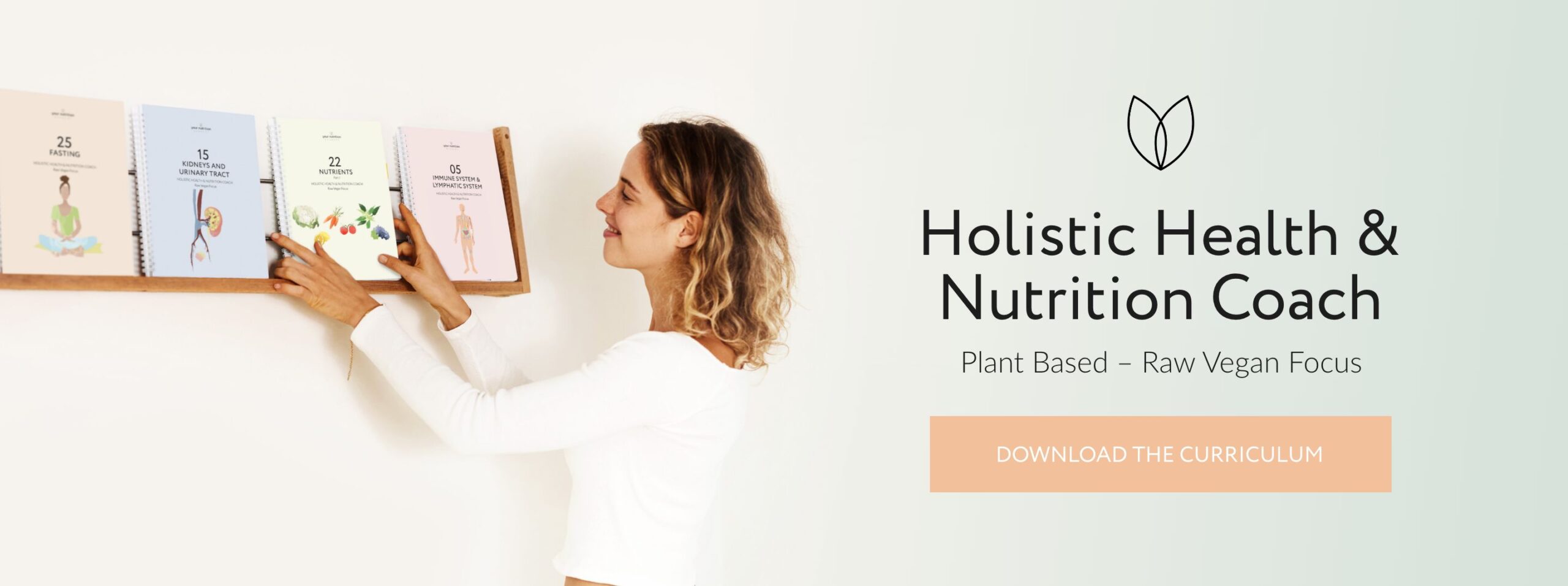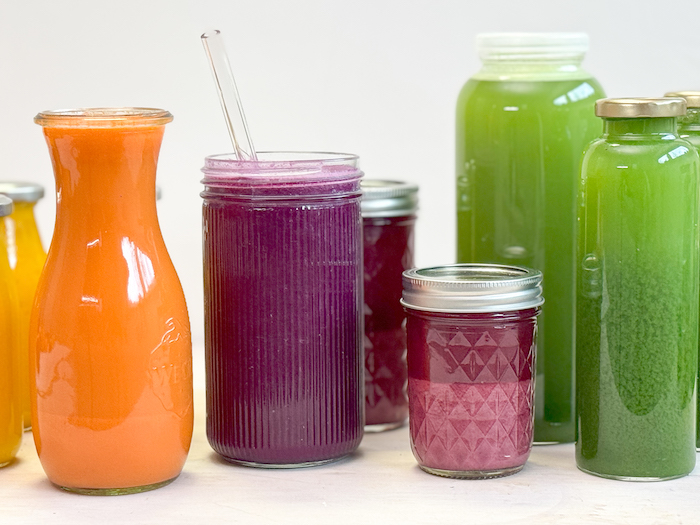Natural Sun Protection
Sunlight is vital to life—an essential contributor to both our physical and emotional well-being. It stimulates the production of vitamin D, supports the immune system, and helps regulate hormonal balance. At the same time, it’s crucial to protect the skin from excessive sun exposure. This can be achieved through conventional sunscreens or by enhancing the body’s natural sun protection mechanisms.
This article explores the effects of sunlight on the human body, introduces natural strategies for skin protection, and compares them to conventional sunscreen products to help guide informed decisions around sun protection.
If you’re passionate about holistic healing, raw nutrition, and natural tools that truly make a difference, you’re in the right place.
At Your Nutrition Academy, we offer in-depth training to become a Holistic Health & Nutrition Coach, equipping you with the exact knowledge behind approaches like Lou Corona’s — and beyond.
Our mentors combines certified expertise in holistic nutrition with profound knowledge of detoxification and regeneration, making this program ideal for anyone who needs support and wants to learn authentic, plant-based health from the inside out.
The Benefits of Sunlight
Sunlight is the most effective and natural way to maintain optimal vitamin D levels. Here’s why it’s so beneficial:
1. Natural Regulation – No Risk of Overdose
The body automatically stops producing vitamin D when sufficient levels are reached. In contrast, excessive supplementation can lead to calcium buildup and kidney complications.
2. Superior Metabolism Through Natural Processes
Naturally synthesized vitamin D is metabolized efficiently via the liver and kidneys, ensuring optimal absorption and activation in the body.
3. Balanced Interaction with Other Biochemical Agents
- Nitric oxide is released, which widens blood vessels and lowers blood pressure.
- Serotonin (the “happiness hormone”) increases, improving mood.
- Melatonin production is regulated, enhancing sleep quality.
- Sulfate formation in the skin supports cellular health and detoxification.
4. Better Calcium-Magnesium Balance
Sun-derived vitamin D supports healthy calcium metabolism without creating imbalances. In contrast, supplements may lead to calcium deposits in the arteries if magnesium and vitamin K2 are lacking.
5. Sustainable and Natural
Sunlight is free, renewable, and provides vitamin D in the form the body is best equipped to use. Supplements, on the other hand, are often synthetic or derived from animal sources (e.g., lanolin from sheep’s wool).
6. Immune System Support Through Natural Vitamin D
Naturally produced vitamin D plays a vital role in modulating the immune system by:
- Enhancing production of antimicrobial peptides (e.g., cathelicidin) that fight viruses and bacteria
- Reducing inflammation by regulating excessive immune responses
- Lowering the risk of autoimmune diseases by balancing immune cell activity
👉 Regular, moderate sun exposure remains the most natural and effective way to maintain healthy vitamin D levels and experience the holistic benefits of sunlight.
Natural Sun Protection
While sunlight is essential for health, it’s wise to consider gentle, natural ways to protect the skin—without relying solely on conventional sunscreens.
Mindful Sun Exposure
One of the skin’s natural defense mechanisms against excessive UV radiation is tanning. The pigment responsible for this coloration is called melanin. When the skin is exposed to sunlight, it begins to produce melanin, which gradually darkens the skin. This melanin accumulates at the surface and helps absorb a portion of the UV radiation.
However, it is essential to approach sun exposure mindfully and in a way that is tailored to individual needs. Different skin types have varying levels of tolerance to UV exposure. A safe approach involves gradually increasing the duration and intensity of sun exposure over time.
Protective Clothing
Wearing a hat and lightweight clothing, especially to protect the head and shoulders, is a simple yet effective strategy.
Plant-Based Oils as Mild Sun Protection
A mild level of sun protection can be achieved using plant-based oils. Sesame oil can block up to 30% of UV radiation and is also rich in antioxidants. Coconut oil offers protection against up to 20% of UV rays, while also providing antibacterial, antioxidant, and tick-repellent properties.
Improved Sun Tolerance Through Raw Plant-Based Nutrition
Many long-term raw food report being able to stay in the sun longer than they could in the past. This increased sun tolerance is largely due to a diet rich in carotenoids and chlorophyll. These plant compounds possess antioxidant properties that can enhance the skin’s natural defense against the harmful effects of UV radiation. Supplementation with astaxanthin, rosehip powder, or blueberry powder has proven to be particularly effective in further supporting this protective effect.
How Sunscreens Work
Sunscreens are formulated with UV filters to shield the skin from harmful rays. These filters fall into two categories: chemical and mineral.
Chemical UV filters – such as octocrylene, oxybenzone, enzacamene, octinoxate, and avobenzone – are being questioned due to their potential links to hormone disruption and cancer. A 2019 clinical study found that these substances not only remain on the skin but also enter the bloodstream at elevated levels.
Mineral filters, including titanium dioxide and zinc oxide, are often considered safer but can leave a white cast on the skin. To minimize this, manufacturers began using nanoparticles, which may penetrate the skin and pose unknown risks. Therefore, products containing nanoparticles should be avoided when possible.
In addition to UV filters, sunscreens often contain preservatives, synthetic moisturizers, and aluminum compounds—many of which raise health concerns.
Did You Know Your Skin is Highly Absorbent?
The skin, like the mucous membranes under the tongue, can absorb substances directly into the bloodstream. Medications like hormone creams or muscle-relaxing gels leverage this property effectively. However, this same mechanism means harmful chemicals in skin products can also bypass digestion and liver detoxification – entering the bloodstream unfiltered.
In some cases, applying a substance to the skin may be more harmful than ingesting it, as the digestive system offers natural protection through enzymes and detoxification. However, when we apply a substance to the skin that can overcome the skin barrier, it is immediately absorbed into the bloodstream and can spread freely throughout the entire body.
This leads us to a critical conclusion:
If you wouldn’t eat it, don’t put it on your skin. This principle encourages a shift toward natural, safe alternatives.
Conclusion
Given the questionable ingredients in sunscreens, we recommend getting your skin used to the sun in spring and gradually increasing your exposure to the sun.
A diet rich in carotenoids and chlorophyll can significantly enhance the skin’s resilience to sunlight. This allows us to fully enjoy sunlight. The sun strengthens our immune system, activates our metabolism, makes us happy, and prevents the widespread and much-discussed vitamin D deficiency.
Would you like to deepen this knowledge and advise others on their path to better health? Then take the opportunity now to participate in our unique, scientifically grounded, and practice-oriented training program.
You can find all the details on our website Your Nutrition Academy !






0 Comments